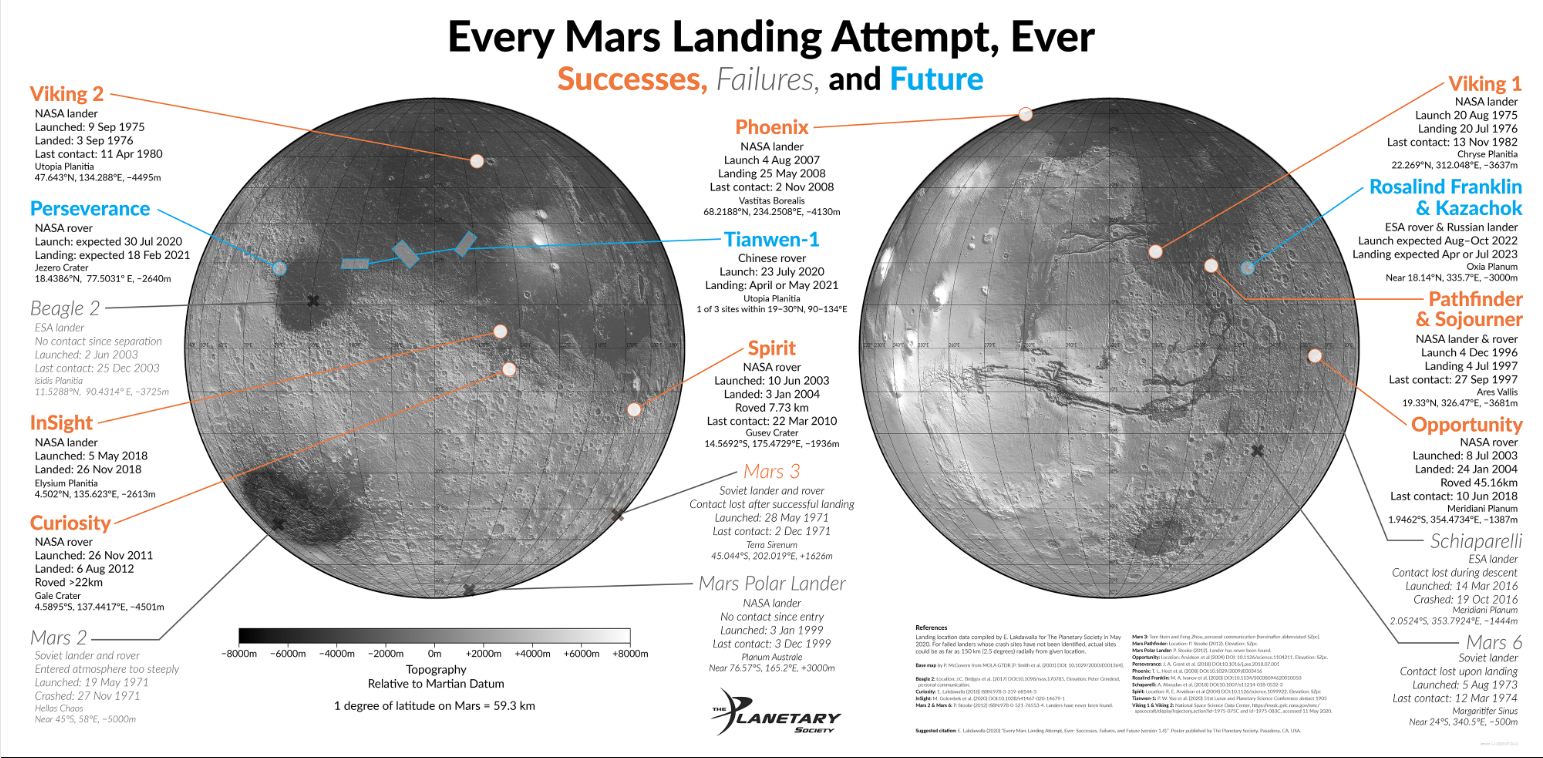Humans to Mars in 4 years?
-
Two years for unmanned? I don't doubt him a bit. The manned missions? Dude, go to the moon first.
@Jolly said in Humans to Mars in 4 years?:
The manned missions? Dude, go to the moon first.
Indeed. It's easier, more like to succeed, and might yield better results (minerals) faster.
Or, better yet, get the Epstein Drive working for constant acceleration.
It could happen?
-
Landing on mars is wicked hard.
USA 12 attempted, 8 successful
Russia/USSR 9 attempted 1 successful
All countries: https://en.wikipedia.org/wiki/List_of_Mars_landers
https://www.planetary.org/space-images/every-mars-landing-attempt-ever

-
In searching for potential dangers humans would face on a long Mars mission, scientists are leaving no stone unturned—including the ones that show up at weirdly high rates in astronauts’ kidneys.
Healthy kidneys filter blood to balance the body’s water, salts and minerals, expelling waste as urine. When this process goes awry, painful kidney stones—hard accumulations of salts and materials such as calcium—can form in this essential organ. Researchers have theorized that astronauts are prone to kidney stones because bones degrade faster in microgravity, increasing calcium levels in the blood. But these stones’ surprising frequency among space travelers even years after they return to Earth suggests other factors are involved.
and
Kidneys are exceptionally responsive and adaptable—but these traits can work against them. When microgravity shifts the body’s distribution of internal fluids, kidney tubules tend to shrink; this action hinders the organ’s ability to properly filter calcium and salts, increasing the risk of kidney stones and other health issues. And diminished tubules are more vulnerable to high-energy cosmic rays. “There’s an unholy alliance between microgravity and galactic radiation,” says study lead author Keith Siew, a kidney physiologist at University College London.
https://www.scientificamerican.com/article/mars-missions-may-be-blocked-by-kidney-stones/